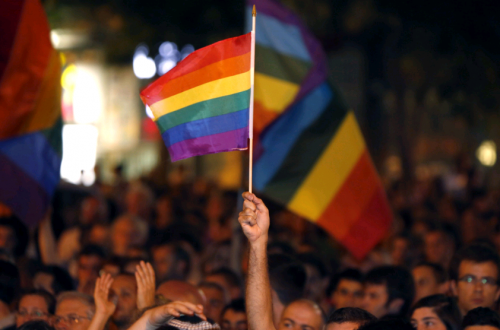The elevator travelled towards the ground with myself and Elie Wiesel in it. I wanted to say something to the man but I couldn’t find the words to do it. I just looked into his face, creased with deep lines that gave a hint as to the life he had endured.
He looked at my maroon beret and my Paratrooper wings as the elevator descended to the ground floor and the Manhattan street. I would have said so much to if my jaw hadn’t been on the floor, if my throat hadn’t gone dry.
I wanted to tell him that there were Jews carrying the guns now, that there was an entire country of us making sure that never again meant just that. I wanted to tell him it was why I was one of them. I wanted to tell him I had read his book Legends of Our Time and the impact it had made on me. I wanted to tell him I felt as if reading his stories gave me a private balcony overlooking his soul. I want to tell him now that generations won’t merely remember him, they will know him, they will feel the pain he felt, remember his memories and say with him never again thanks to his success in transmitting his essence to us through his words.
But it felt silly to say these things to him. There was nothing I could tell him that he didn’t know already.
What I wanted to tell him most of all was that I wanted to be a writer. A real one, like him.
But instead I just gawped.
And now that he’s dead any remaining fantasies I had about being able to meet him once again, as a real, published author are gone.
I suppose like all great men he was under attack before even in his final resting place .
Thankfully those attacks can no longer bother him. But they bother me.
Wiesel went “from being a great victim of war crimes to being an apologist for those who commit them” #pt https://t.co/hpSd09h4BH
— Mehdi Hasan (@mehdirhasan) July 2, 2016
Mehdi Hasan shames himself with these words, perhaps he’s simply engaging in baiting I don’t really know.
The Tweets go on I won’t bother pasting any more of them.
For me it seems rather clear that a young Jew surviving the Shoah would come to the conclusion that a Jewish state in this world would be a good thing. Something he must have wished existed before his fellow Romanians, sick of persecuting the Jews in the usual way joined in with the Germans and decided killing him and his family and all their other Jews would be a great thing to do.
He and hundreds of thousands of Jewish survivors came to the conclusion that the world would be a better place were there a state for the Jews in it. For those orphaned, broken, men and women sitting amidst the rubble of recently liberated camps the concept of human rights must have seemed like a sick joke. How could the survivors have thought anything other than the time for a state of their own had come?
While Hasan and others talk about human rights for Palestinians they choose to paint any supporter of Israel as a monster and any Zionist Holocaust survivor as a contradiction in terms. Wiesel knew better than to bow down to those who insult him. On the contrary he stood up, for Israel and for his people to the last.
I can’t help but feel that Wiesel wouldn’t mind in the slightest being attacked and reviled by the likes of Hasan, he would probably feel that the attack says a great deal more about the attacker than about himself. But I do mind, insulting Wiesel feels akin to insulting all of the Jews, akin to dismissing who we are.
A legend of our time is dead though he will continue to live on through his many works of literature, through the Holocaust Museum in Washington DC that he was instrumental in establishing and through many other positive contributions he made to world.
Nevertheless this world will still be that much poorer for him no longer being in it.
All I can wonder now is how we will replace these giants? These people who saw more in their lives than we will ever see, who came through the harshest suffering still able to do so much good.
Here he is, that legend of our time being called a Zio-Nazi by envoys of that great bastion of human rights, the Iranian regime;


